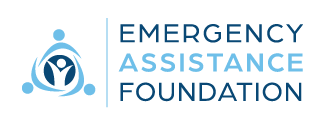
Charitable Class is a Core Concept for Relief Funds
August 30, 2017
Expanding Relief Fund Grant Eligibility Past Traditional Team Members
September 27, 2017September 13, 2017
The IRS scrutinizes whether disaster and hardship relief funds impermissibly serve the private interests of the fund's sponsoring organizations. The prohibition on serving the sponsoring organization’s needs practically means that eligibility for the relief fund cannot be a team member benefit. Those benefits aid organizations by making their workplaces more appealing to both current and potential team members. Team member benefits, often seen in company health or other insurance plans, are often part of a larger contractual agreement between the team member and a sponsoring organization. A natural, but mistaken, impulse is to include relief fund eligibility along with traditional team member benefits.
It is clear from the IRS position, which courts have affirmed, that disaster and hardship relief fund eligibility cannot be a team member benefit. This is true even when there is an independent nonprofit administrator for the relief fund. The IRS has explicitly forbidden this approach, saying exclusion from such benefit programs is a condition to assess both the fund’s charitable purpose and tax-free status for grants. Indeed, the Service specifically states:
“The [relief fund] does not fulfill a legal obligation of the employer, such as a program that is part of a collective bargaining agreement or a program that is part of a written plan that provides life, sick, accident, supplemental unemployment compensation or similar benefits.”
This is an obvious and unacceptable way in which sponsoring organizations might use the relief fund to serve a nonexempt purpose. Indeed, the IRS has successfully challenged programs that were serving as a team member benefit more than once. A company-sponsored program to provide scholarships to team members was held to be a fringe benefit of employment. In another case, the fund was guaranteed in a collective bargaining agreement, which the Sixth Circuit and IRS agreed was a form of compensation. For this reason, a disaster and hardship relief fund which aims to provide tax-exempt grants to team members must avoid even the appearance of being a team member benefit.




